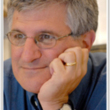Doubt is their product : how industry's assault on science threatens your health
(Book)
615.902 MICHA
1 available
Copies
| Location | Call Number | Status |
|---|---|---|
| Shirlington - Adult Nonfiction | 615.902 MICHA | Available |
Description
More Details
Notes
Table of Contents
Similar Titles From NoveList
Similar Authors From NoveList
Published Reviews
Choice Review
Michaels (George Washington Univ.) argues that health and safety regulation in the US is being subverted by industrial consultants, who often argue successfully that the health risk of a chemical is not fully understood (uncertain, doubtful) and that stricter controls on exposure therefore should be delayed or abandoned. Thinly told case studies on the regulation of mercury, arsenic, ionizing radiation, tobacco, and lead, among other entities, conclude that any formal scientific opposition to stricter regulation is a deliberately misleading manipulation of the evidence. But in a chapter criticizing the 1993 Supreme Court decision (Daubert) that allows judges to exclude expert testimony based on "unreliable and irrelevant" evidence, i.e., linking a chemical to harm at exposures previously thought to be safe, Michaels writes that "uncertainty is the norm, not the exception" and that "uncertainty does not mean the science is flawed." So uncertainty (doubt) should be ignored if it delays regulation, but uncertain evidence that supports a plaintiff's claim of chemical harm is normal and good and should be used in court? More objective coverage is supplied by Inge Goldstein and Martin Goldstein in How Much Risk?: A Guide to Understanding Environmental Health Hazards (CH, Oct'02, 40-0937). Summing Up: Optional. Graduate students and above. B. C. Wyman McNeese State University
Library Journal Review
Despite the overwhelming evidence that tobacco use causes lung cancer and other forms of the disease, the American tobacco industry vigorously denied for decades any cancer link, hiding the facts and attempting to discredit the growing body of medical and scientific evidence. Michaels, a scientist and former government regulator, identifies many other harmful industries in the nation that are using similar tactics. He points to the chrome-plating, lead, and rubber industries, which in many instances knowingly expose workers to toxic substances and produce harmful products. These businesses, like the tobacco industry, continue to deny and attack the findings that show their harm. They label such findings as "junk science," and they hire product-defense consultants to shape and skew the scientific literature, create uncertainty, and influence policy decisions in their favor. To protect against such tactics, Michaels discusses a number of ways to strengthen the nation's court system and regulatory agencies. This insightful, well-written, and well-researched book is an essential read for anyone interested in occupational health and safety and public health.--Ross Mullner, Sch. of Public Health, Univ. of Illinois, Chicago (c) Copyright 2010. Library Journals LLC, a wholly owned subsidiary of Media Source, Inc. No redistribution permitted.
Library Journal Reviews
Despite the overwhelming evidence that tobacco use causes lung cancer and other forms of the disease, the American tobacco industry vigorously denied for decades any cancer link, hiding the facts and attempting to discredit the growing body of medical and scientific evidence. Michaels, a scientist and former government regulator, identifies many other harmful industries in the nation that are using similar tactics. He points to the chrome-plating, lead, and rubber industries, which in many instances knowingly expose workers to toxic substances and produce harmful products. These businesses, like the tobacco industry, continue to deny and attack the findings that show their harm. They label such findings as "junk science," and they hire product-defense consultants to shape and skew the scientific literature, create uncertainty, and influence policy decisions in their favor. To protect against such tactics, Michaels discusses a number of ways to strengthen the nation's court system and regulatory agencies. This insightful, well-written, and well-researched book is an essential read for anyone interested in occupational health and safety and public health.—Ross Mullner, Sch. of Public Health, Univ. of Illinois, Chicago
[Page 104]. Copyright 2008 Reed Business Information.Reviews from GoodReads
Citations
Michaels, D. (2008). Doubt is their product: how industry's assault on science threatens your health . Oxford University Press.
Chicago / Turabian - Author Date Citation, 17th Edition (style guide)Michaels, David, 1954-. 2008. Doubt Is Their Product: How Industry's Assault On Science Threatens Your Health. Oxford: Oxford University Press.
Chicago / Turabian - Humanities (Notes and Bibliography) Citation, 17th Edition (style guide)Michaels, David, 1954-. Doubt Is Their Product: How Industry's Assault On Science Threatens Your Health Oxford: Oxford University Press, 2008.
Harvard Citation (style guide)Michaels, D. (2008). Doubt is their product: how industry's assault on science threatens your health. Oxford: Oxford University Press.
MLA Citation, 9th Edition (style guide)Michaels, David. Doubt Is Their Product: How Industry's Assault On Science Threatens Your Health Oxford University Press, 2008.




























